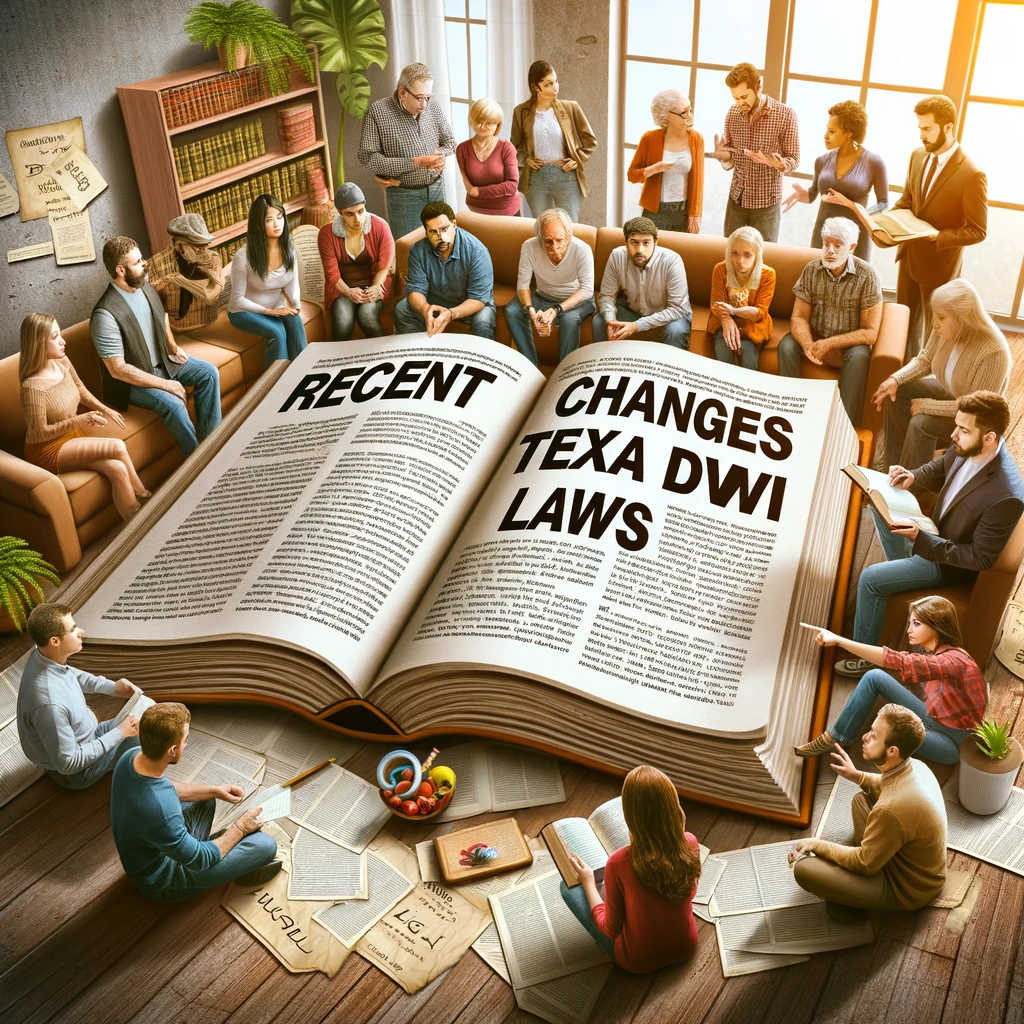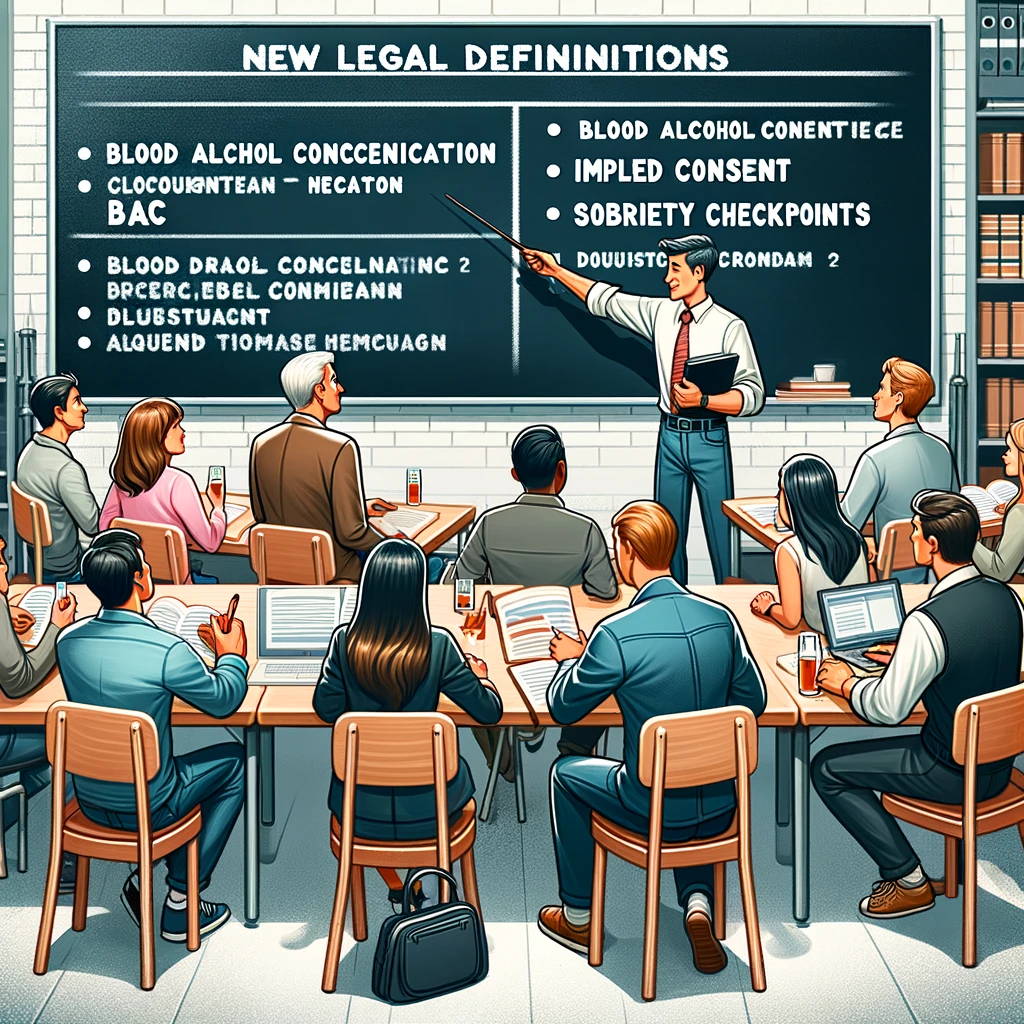
For any Texas driver, staying informed about recent changes in Texas DWI laws is not just beneficial; it’s necessary. The legal landscape evolves, bringing about significant impacts on daily driving practices. Let’s dissect these changes to ensure you’re fully equipped with the knowledge you need. To stay informed about recent changes in Texas DWI laws.
A Texas-Sized Change to DWI Laws
Picture this: You’re cruising down a Texas highway, the vast sky sprawling above, music blasting from the speakers. Life’s good, right? Then, the unthinkable happens – those flashing lights in your rearview mirror. No, this isn’t a scene from your favorite road trip movie; it’s a reality that could change due to the new DWI laws in Texas.
Why should you keep reading?
Well, because knowledge is power, especially when it involves staying on the right side of Texas law. In this article, we’re diving deep into the heart of Texas — no, not the Alamo — but the recent changes in Texas DWI laws that could impact your next night out or road trip.
So, buckle up, dear reader! Whether you’re a long-time resident or just passing through, this guide will keep you informed, compliant, and most importantly, out of trouble. Let’s navigate these legal changes together, with a touch of humor and a ton of important information. After all, in the land of the free and the home of the brave, it’s best to drive smart and stay informed!
Overview of Recent Changes in Texas DWI Laws
In recent years, Texas legislators have passed new DWI statutes. These alterations pertain mainly to penalties, enforcement tactics, and legal processes. The goal is clear: to curtail the rising tide of drunk driving incidents. By understanding these laws, Texans can navigate roads more safely and legally.

Impact of New DWI Laws on Texas Drivers
The ripple effects of these changes are vast for Texas drivers. Notably, penalties have intensified, aiming to deter the act of driving while intoxicated. Moreover, the duration for which a license can be suspended has increased, stressing the gravity of adhering to these laws. These revisions signify the state’s stern stance against drunk driving.
Legal Definitions and Clarifications
With new laws come new terminologies and legal nuances. Understanding the adjusted “blood alcohol concentration (BAC)” levels is crucial, as it determines the legality of your driving state. “Implied consent,” a term many might overlook, holds substantial weight in legal proceedings following a DWI arrest. Lastly, the utilization and legality of “sobriety checkpoints” have evolved, impacting how law enforcement monitors and controls drunk driving.
| Legal Term | Definition & Clarification |
| Blood Alcohol Concentration (BAC) | The legal limit for BAC has been updated. Exceeding this limit while driving is illegal. |
| Implied Consent | By driving in Texas, you automatically consent to BAC testing. Refusal can lead to serious consequences. |
| Sobriety Checkpoints | Locations where law enforcement can check drivers for sobriety without a warrant. Practices have evolved under new laws. |

Comparison with Previous DWI Laws
Understanding the new versus old provides perspective. Previously, some penalties were less severe, and enforcement strategies differed. Today’s changes reflect a hardened approach to combating DWI, showcasing legislative intent to enhance road safety. This comparison helps drivers appreciate the legal landscape’s evolution and its implications on their driving behavior.
Key Safety and Legal Tips for Texas Drivers Under New DWI LawsAdvice for Drivers
Adapting to these changes is crucial for every Texas driver. Practicing safe driving and being aware of one’s alcohol consumption before driving are imperative. Additionally, understanding the legal ramifications of these new laws can steer drivers away from potential infractions. Knowledge is power, particularly when it comes to navigating Texas roads under the new DWI regulations.
Legal Consequences and Penalties
The consequences for DWI now are more severe than ever. These can range from hefty fines to extended jail time, depending on the offense’s severity. Community service and mandatory rehabilitation programs have become more commonplace, aiming to rectify behavior and prevent future infractions. These sterner penalties underscore the importance of driving soberly and responsibly.
The Role of Law Enforcement
With new laws, law enforcement agencies have adjusted their tactics. Arrest procedures, evidence gathering, and court processes have been refined to align with new regulations. This adjustment ensures that those caught driving while intoxicated are processed accurately and fairly, adhering to the updated legal framework. Understanding these procedures can provide insights into the legal journey following a DWI charge.

Resources for Legal Assistance
Facing a DWI charge can be daunting. However, numerous resources are available for those seeking legal guidance. From legal aid organizations to private attorneys specializing in DWI cases, support is available. Early legal consultation can significantly impact the outcome of a case, making it essential for individuals to seek assistance promptly after an arrest.
Public Reaction and Opinions
Public sentiment towards the new DWI laws varies. Some applaud the stricter measures, viewing them as necessary for public safety. Others criticize them, deeming them too harsh. Despite differing opinions, the ultimate aim is to foster a safer driving environment. Engaging with community discussions can provide additional insights and help individuals understand the broader societal impacts.
Preventive Measures and Educational Programs
To combat the root cause of DWI, Texas has implemented various preventive measures. Educational campaigns and community outreach efforts aim to inform and deter individuals from driving under the influence. These programs focus on raising awareness and providing alternatives to driving after consuming alcohol, such as designated drivers or ride-sharing services. Participation in these initiatives can contribute to a safer community for all.
In wrapping up recent changes in Texas DWI laws
The landscape of Texas DWI laws has undergone significant changes, emphasizing the importance of staying informed and compliant. As drivers, understanding and adapting to these changes is not just about avoiding legal repercussions; it’s about contributing to the safety and well-being of our communities. Let’s navigate these roads wisely, upholding the law and safeguarding each other’s lives. Remember, informed driving is safe driving, and by adhering to the new Texas DWI laws, we all contribute to a safer, more responsible Texas.
Navigating the New Norm with a Touch of Texan Charm
And there you have it, folks – the end of our legal road trip through the heart of Texas DWI changes. Phew, what a journey! From the highs of understanding new laws to the lows of realizing the hefty consequences of not following them. It’s like a rollercoaster ride at your favorite Texas theme park, but with more learning and less screaming.
Why should you remember all thisrecent changes in Texas DWI laws?
Simply because in the Lone Star State, we ride together, we abide together. These changes aren’t just lines in a legal document; they’re the new rules of the road, designed to keep all of us safe, sound, and singing along to our favorite tunes, rather than facing the music in a courtroom.
So, take this newfound knowledge, tuck it into your cowboy hat, and hit the roads with confidence and care. Remember, a well-informed Texan is a safe and happy Texan. Drive safe, y’all, and let’s keep our roads as friendly as our people. Here’s to clear skies, clear roads, and clear records!

Other Related Articles:
- Texas’ Response to Designer Drugs: Laws and Enforcement
- DUI vs. DWI: What’s the Difference?
- The ABC’s of DWIs in Texas
- The Impact of DUI/DWI on Child Custody Cases in Texas
- Field Sobriety Tests: What You Need To Know
- The Making of Bentley’s Law
- Pouring Responsibility: Understanding the Texas Dram Shop Act
- Driving with Care: Roadway Responsibilities
- What the Law Says: Failing to Stop and Render Aid
- Drug Crimes vs Drug Offenses: What’s the Difference In Texas?
Frequently Asked Questions:
The new law in Texas has introduced stricter penalties and lower blood alcohol concentration limits to deter drunk driving.
The legal limit for blood alcohol concentration in Texas is 0.08% for most drivers, but lower for commercial drivers and minors.
Yes, Texas is known for having strict DWI laws and penalties, including heavy fines, license suspension, and even jail time for offenders.
The “second chance” law in Texas allows certain first-time DWI offenders to seal their criminal records, given they meet specific conditions.

